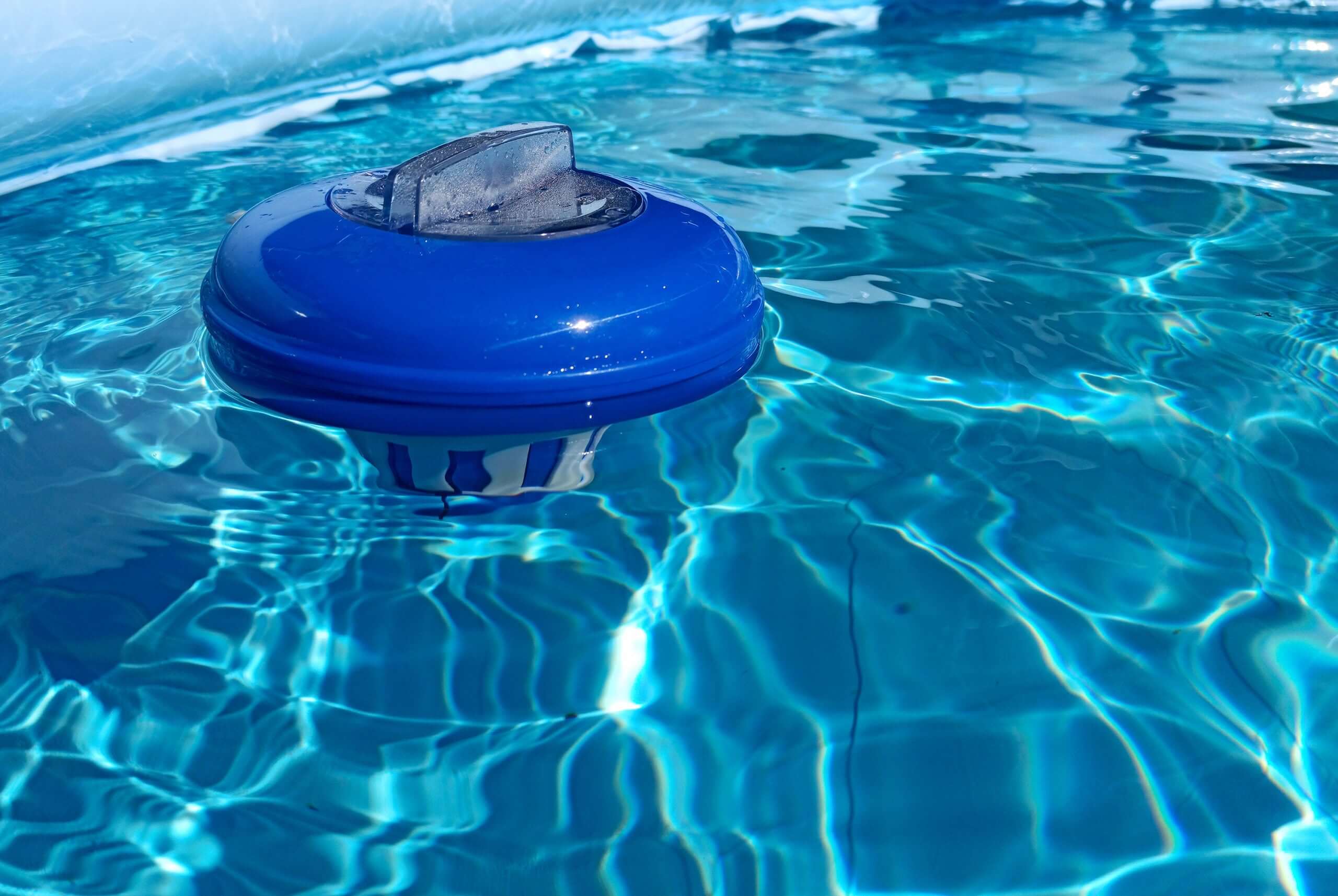Keeping your swimming pool crystal clear requires more than just chemicals – a reliable pool cleaner is essential for removing debris, preventing algae growth, and maintaining water quality. With pool ownership reaching record highs in 2025, choosing the right cleaning equipment has never been more important.
As summer approaches, many pool owners face the crucial decision: which type of pool cleaner offers the best combination of efficiency, cost-effectiveness, and convenience? The answer depends on your specific needs, pool type, and budget considerations.
Understanding the Three Main Types
Before diving into detailed comparisons, let's establish a clear understanding of how each cleaner type works:
Robotic Pool Cleaners: The Smart Choice
Robotic pool cleaners represent the cutting edge of pool maintenance technology. These self-contained units operate independently from your pool's filtration system, using built-in motors, pumps, and filtration systems.
How they work: When placed in your pool, these intelligent devices navigate along the floor, walls, and waterline using programmed algorithms and sensors. They scrub surfaces with rotating brushes while simultaneously vacuuming debris into their built-in filter bags or canisters.
Pros:
- Energy efficiency: Consume significantly less power than other options
- Superior cleaning performance: Scrub and vacuum simultaneously
- Independent operation: Don't tax your pool's circulation system
- Smart features: Many models offer programmable schedules, remote control operation, and even smartphone connectivity
- Thorough coverage: Advanced navigation systems ensure complete pool coverage
Cons:
- Higher initial investment: Quality models typically range from $600-1,500
- Maintenance needs: Filter bags/canisters require regular cleaning
- Weight considerations: Some models can be heavy when removing from the pool
According to the latest Consumer Reports survey, robotic cleaners consistently receive the highest satisfaction ratings among pool owners, with 92% reporting they would purchase the same type again.
Suction Pool Cleaners: Budget-Friendly Options
Suction-side pool cleaners connect to your pool's existing filtration system through the skimmer or a dedicated suction line, using the suction power of your pool pump to operate.
How they work: These devices move around your pool randomly, using the water flow from your filtration system to create movement. As they travel, they suck up debris which then flows through your pool's regular filtration system.
Pros:
- Affordability: Most models range from $100-400
- Simple design: Fewer moving parts means less potential for breakdowns
- Easy installation: Simply attach to your skimmer or dedicated suction line
- Effective for leaves and smaller debris: Work well for regular maintenance
Cons:
- Relies on pool pump: Increases the workload on your filtration system
- Limited scrubbing capability: Less effective at removing algae and biofilm
- Dependent on proper flow: Performance varies based on pump strength
- Filter cleans required: More frequent backwashing of your pool filter
The American Pool and Spa Association notes that suction cleaners remain the most widely used option for residential pools due to their affordability and simplicity, particularly for pools under 15,000 gallons with moderate debris exposure.
Check out our guide to optimizing suction cleaner performance for tips on getting the most from these economical options.
Pressure Pool Cleaners: The Happy Medium
Pressure-side cleaners connect to your pool's return jet (or a dedicated pressure line) and use water pressure from your pump to power their movement and debris collection.
How they work: Water pressure drives these units around the pool while simultaneously creating a venturi effect that sucks debris into an attached collection bag. Some models include additional booster pumps for enhanced performance.
Pros:
- Dedicated debris collection: Doesn't burden your pool's filter system
- Powerful pickup: Effectively handles larger debris like leaves and acorns
- Reduced wear on filtration: Extends the life of your pool's filter
- Moderate price point: Typically range from $300-800
- Good for high-debris environments: Ideal for pools surrounded by trees
Cons:
- Installation complexity: Some models require a dedicated pressure line
- Booster pump models: Higher energy consumption and installation costs
- Bag maintenance: Collection bags need regular emptying
- Limited wall climbing: Some models focus primarily on floor cleaning
According to Pool & Spa News, pressure cleaners have seen a 27% increase in popularity over the past two years, particularly in regions with significant seasonal foliage.
For a detailed analysis of how pressure cleaners perform in different scenarios, visit Wikipedia's comprehensive pool maintenance section.
omparison Chart: At-a-Glance Decision Guide
| Feature | Robotic Cleaners | Suction Cleaners | Pressure Cleaners |
|---|---|---|---|
| Initial Cost | $600-1,500 | $100-400 | $300-800 |
| Operating Cost | Very Low | Moderate | Moderate-High |
| Installation Difficulty | Plug & Play | Easy | Moderate |
| Cleaning Effectiveness | Excellent | Good | Very Good |
| Debris Collection | Self-Contained | Pool Filter | Collection Bag |
| Wall Climbing Ability | Excellent | Variable | Limited |
| Smart Features | Extensive | None | Minimal |
| Energy Efficiency | Excellent | Depends on Pump | Poor-Moderate |
| Maintenance Required | Moderate | Low | Moderate |
| Best For | All pool types, especially complex shapes | Small to medium pools with minimal debris | Medium to large pools with heavy debris |
Rising Trends in Pool Cleaning Technology
The pool maintenance industry has seen significant innovation in recent years. Here are the latest trends transforming how we keep our pools clean:
1. AI-Powered Navigation
The newest generation of robotic cleaners utilizes artificial intelligence to map pool dimensions and optimize cleaning patterns. These smart devices learn your pool's specific layout over time, ensuring more thorough coverage while reducing cleaning time by up to 40%.
2. Solar-Powered Options
With energy efficiency becoming increasingly important, solar-assisted pool cleaners are gaining popularity. These eco-friendly options use renewable energy to supplement power needs, reducing electricity consumption by up to 85% compared to traditional models.
3. App Integration and Smart Home Compatibility
Modern pool cleaners now offer seamless integration with smart home systems. Through dedicated apps, users can schedule cleanings, receive maintenance alerts, and even view cleaning progress in real-time. Some advanced models are now compatible with voice assistants like Alexa and Google Home.
4. Enhanced Filtration Technology
Cutting-edge filtration systems in the latest cleaners can capture particles as small as 2 microns – significantly smaller than what traditional pool filters manage. This microscopic cleaning capability improves water clarity and reduces chemical requirements.
For more on these emerging technologies, explore our guide to smart pool maintenance solutions.
Which Cleaner Is Right for Your Specific Pool?
Selecting the ideal pool cleaner depends on several key factors unique to your situation:
For Above-Ground Pools
- Best option: Suction cleaners or lightweight robotic models
- Why: Above-ground pools typically have less debris and simpler configurations
- Consideration: Ensure the cleaner is specifically rated for above-ground use
For In-Ground Vinyl Liner Pools
- Best option: Robotic cleaners with soft brushes or gentle suction models
- Why: Protects the vinyl liner from tears or damage
- Consideration: Avoid cleaners with aggressive wheels or brushes
For Concrete/Gunite Pools
- Best option: Robotic cleaners with strong scrubbing brushes
- Why: Effectively removes algae from porous surfaces
- Consideration: Look for models with extra scrubbing power
For Large Pools (Over 20,000 Gallons)
- Best option: Robotic cleaners with extended power cords or pressure cleaners
- Why: Ensures complete coverage of larger areas
- Consideration: Check maximum recommended pool size in specifications
For Pools with Heavy Debris (Surrounded by Trees)
- Best option: Pressure cleaners with large debris bags or high-capacity robotic models
- Why: Better handling of leaves, twigs, and other large debris
- Consideration: Look for models with large intake ports to prevent clogging
For Pools with Unique Features (Beach Entries, Tanning Ledges)
- Best option: Advanced robotic cleaners with smart navigation
- Why: Can detect and clean specialized areas
- Consideration: Verify compatibility with specific features
Our interactive pool cleaner selector tool can provide personalized recommendations based on your specific pool characteristics.
Maintenance Tips for Longevity
Regardless of which pool cleaner type you choose, proper maintenance is essential for optimal performance and longevity:
For Robotic Cleaners:
- Rinse filter canisters/bags after each use
- Clean the brushes weekly to remove tangled hair and fibers
- Store the power supply unit out of direct sunlight and rain
- Check the power cord regularly for damage or kinks
- Remove the cleaner from the pool when not in use
For Suction Cleaners:
- Inspect hoses regularly for cracks or leaks
- Clean the inline filter screen weekly
- Check moving parts for wear and tear monthly
- Ensure proper water flow through your filtration system
- Store out of direct sunlight when not in use
For Pressure Cleaners:
- Empty the debris bag when it reaches 1/3 full
- Check the sweep tail for damage regularly
- Inspect the wheels and bearings for proper rotation
- Clean the filter screen in the wall connector monthly
- Ensure proper pressure from your return line
For detailed care instructions specific to your Xbenbot model, visit our comprehensive maintenance guides.
Conclusion
The ideal pool cleaner for your needs ultimately depends on your specific circumstances: pool size, type, debris load, and budget. Here's our summary of recommendations:
- Choose a robotic cleaner if: You value convenience, efficiency, and are willing to make a higher initial investment for superior performance and lower long-term operating costs.
- Choose a suction cleaner if: You're working with a limited budget, have a smaller pool with minimal debris, and already have a good filtration system.
- Choose a pressure cleaner if: You have a pool with substantial debris issues, want to reduce strain on your filter system, and can accommodate the installation requirements.
Remember that the right pool cleaner is an investment in both your pool's health and your free time. By selecting the appropriate cleaner for your specific needs, you'll enjoy more swimming and less maintenance throughout the season.




Leave a comment
This site is protected by hCaptcha and the hCaptcha Privacy Policy and Terms of Service apply.